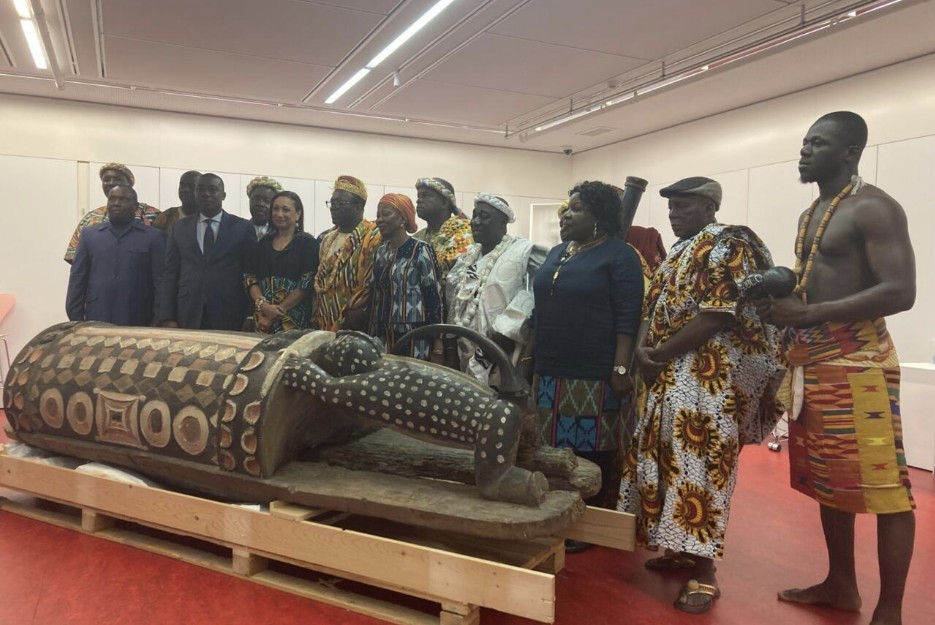When Protectors Harm – The Case of UN Peacekeepers
- Paolo San Jose
- Jun 16, 2025
- 4 min read

Trigger Warning -- this article includes content involving sexual abuse
The United Nations occupies a central role in maintaining international order. Peacekeeping is seen by the organisation as an instrument that assists states in conflict create conditions for lasting peace. As the world’s largest peacekeeper, the UN fulfils this function through its peacekeeping forces. Often recognised by their trademark blue berets or helmets, U.N. peacekeepers work at the front lines of some of the most war-torn areas, seeking to facilitate much-needed peace processes, and bring harmony between ex-combatants. For decades, civilians have sought the aid of U.N. peacekeepers to alleviate the horrors of humanity’s worst atrocities.
However, countless reports of sexual exploitation and abuse by peacekeeper forces call into question the true effectiveness of the U.N.’s peacekeeping functions.
Sexual exploitation among U.N. staff is indeed not a new issue. Cases of sexual exploitation and abuse by U.N. forces have been reported for quite some time. Last year, the U.N. acknowledged that despite improvements in reports as a result of revised policies and procedures, sexual exploitation still remains across the U.N. system. A 2024 U.N. report revealed that during 2023, the organisation received 758 complaints of sexual exploitation and abuse committed by its staff. Notably, one-hundred of these were reported in peacekeeping and special political missions.
The majority of these complaints – almost 90 per cent – emerged from the UN Mission in the Democratic Republic of the Congo (MONUC). An investigation by Human Rights Watch reported on the ‘frequently exploitative’ nature of the sexual abuse committed by MONUC soldiers. The organisation found that girls aged between 12-15 engaged in ‘survival’ sexual relations with soldiers in order to get food, money or protection. The scale of these reports exacerbate the prevalence of gendered violence against women in the country. Approximately forty-thousand women and girls have been sexually abused by armed groups in the Congo. Unfortunately, various organisations have reported on similar practices of sexual exploitation in Bosnia, Sierra Leone, and Liberia.
The presence of U.N. peacekeeping forces in Haiti illustrate the detrimental social impact that such practices leave on local communities. Haitian communities with stationed U.N. peacekeeping missions have seen an emergence of women raising children from a peacekeeper father. To capture the rising number of these ‘peacekeeper’ children, an academic study interviewed 2,500 community members about living in towns with peacekeepers – 10 percent raised the issue of children being fathered by soldiers without being prompted to do so. These children are often stigmatised by fellow Haitians, and so too their mothers.
As Heritage Foundation’s Dr. Nile Gardiner asserts, these sexual abuse allegations raise serious concerns over the U.N.’s lack of oversight of its peacekeeping troops, and point to the ‘culture of secrecy and lack of accountability that pervade the U.N. system.’ Additionally, the U.N.’s extraterritoriality, the immunities and exemptions it enjoys from a state’s domestic laws, extend to its staff. As freedom from criminal prosecution is one such immunity, many instances of peacekeeper sexual abuse have been left unpunished.
The UN Response
Practices of sexual exploitation by its forces is something that the U.N. has continually condemned. Following the release of the aforementioned 2024 Report, U.N. Secretary-General António Guterres expressed that such practices ‘violate everything the United Nations stands for.’ U.N. Deputy Spokesperson Farhan Haq reaffirmed the organisation’s victim-centred approach in preventing and responding to sexual exploitation by its forces.
Beyond these statements, however, we can only find little tangible progress.
While the U.N. can indeed investigate allegations of sexual abuse and gendered violence, legal accountability on the peacekeeper in question is up to the country from which the officer was sent, and hence prosecutions have been quite rare. Moreover, some jurisdictions lack the legal capacity to fully hold officers to account for their acts.
Despite these obstacles, the U.N. has introduced several institutional reforms. In 2017, Guterres established an initiative that appoints a victims’ rights advocate to work on the ground within UN peacekeeping missions, who then collaborate with a human rights expert in Guterres’ office to help facilitate accountability for abusers. The U.N. also established a trust fund and programs for psychological care, job training, and other services for victims, including children of peacekeepers.
Additionally, since 2014, the U.N. has actively collaborated with states that contribute peacekeeping troops in collecting DNA samples, which help kickstart paternity claims against sexual abusers. It is the member state’s responsibility to collect and test DNA samples of their staff in accordance with domestic laws on collection and testing. This initiative helps build an important bridge between the capacity for the U.N. to assist in paternity claims, and the national laws to which the paternity claims are subject. However, the continuing disconnect between the two have made success in this initiative difficult to achieve. While Guterres called on member states to establish centralised structures for receiving and advising on paternity claims, most states haven’t done so.
Overall, there’s been a lack of tangible progress in holding peacekeepers accountable for their crimes, and there is much to be done in eradicating all forms of sexual exploitation and abuse by peacekeeping authorities. Indeed, survivors of conflict and vulnerable communities shouldn’t have to fear that their suffering will be made worse by those assigned to protect them.





Comments